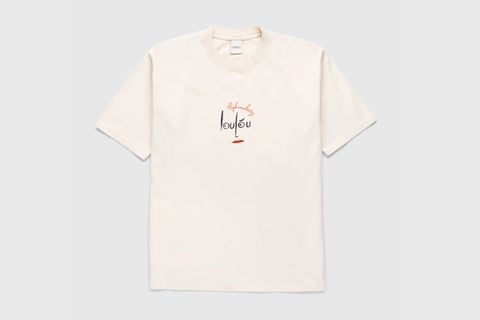When Is It Time to Put Couture Week on Pause?
Haute Couture Week, the extra-ornamental cousin of Paris Fashion Week, is predicated upon resplendent runway shows artful enough to elicit dreamy introspection. However, Couture Week Fall/Winter 2023, held in Paris from July 3-6, is prompting a different kind of query.
Specifically, as France turns out in droves to protest police brutality, one wonders whether Paris really needs a three-day extravaganza dedicated to fancy clothes for the ultra-rich at this very moment.
Less than a century ago, couture clothing and luxury clothing were one and the same. Couture houses epitomized luxury, painstakingly producing made-to-measure couture garments for wealthy patrons. Yves Saint Laurent, Cristobal Balenciaga, Elsa Schiaparelli, Paul Poiret, and Jacques Doucet weren’t designers — they were couturiers and they wove wearable fantasies. What’s happening in Paris right now, however, is reality.
On June 27, police shot Nahel Merzouk, a a 17-year-old second-generation North African immigrant, in the Paris suburb of Nanterre. The killing set off police brutality protests that have only intensified in the intervening days.
In response, creative director Hedi Slimane canceled the CELINE fashion show scheduled to occur irrespective of Haute Couture Week on July 3, making Slimane’s CELINE the only luxury label to publicly comment on the Paris protests thus far.
A statement posted to Slimane's Instagram page on July 2 reads, in part, "[hosting] a fashion show in Paris while France is bereaved and bruised seems, to me, inconsiderate and totally out of place." CELINE and Slimane aren't grandstanding on sentiment. They’re quietly absorbing the (not insignificant) costs that come with last-minute canceling an extremely expensive fashion show to both ensure the safety of prospective guests and respect the protestors’ cause.
That’s a level of selflessness rarely seen in luxury fashion. And, in stark contrast, Haute Couture Week is continuing unabated.
While "luxury clothing" and the designers who create it have become more accessible than ever, the Couture Week organizers, France's Fédération de la Haute Couture et de la Mode, have consistently distinguished their event as a parade of tangible art, emphasizing handcrafted couture as a balm to today's hype-driven consumerism.
The irony is that, while Couture Week celebrates garments unattainable to all but the world's wealthiest, it still aims to drive attention from the masses with buzzy viral moments and A-list celebrities sitting front-row.
But never is the distinction between the fanciful realm of Couture Week and the real world more stark than when protests rage a few short miles from the couture runways. As Jess Cartner-Morley pointed out in The Guardian, these Couture Week shows are a tangible “reflection of the polarization” currently occluding France.
There's plenty of room in the world for art for art's sake.
It’s rarely an issue that Couture Week willfully detaches itself from reality: the event is typically a pleasant distraction to the public and financially crucial for fashion houses. In better times, couture shows are, at worst, a harmless indulgence.
But these are not better times and no longer does the indulgence feel harmless, at least not right now.


